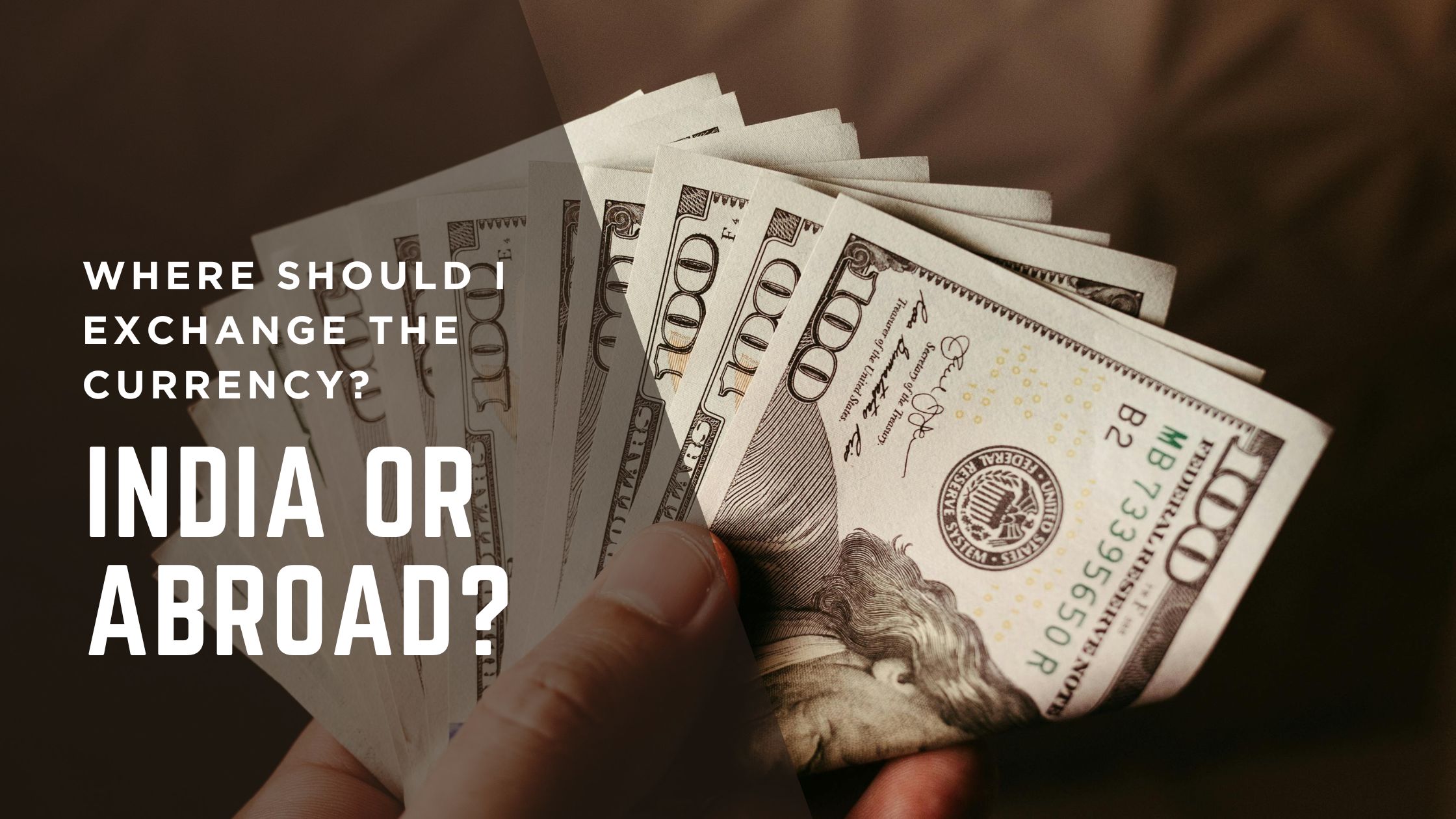
Is It Better to Exchange Money Abroad or Home?
Let's Answer your Questions first
Is it better to exchange money abroad or at home?
For most travelers (also Indian), it’s better to exchange the bulk of your currency at home. You’ll get better rates, avoid scams, and have peace of mind.
Are Indian airports a good place to exchange currency?
If you are in need of some emergency funds, the airport can be a good option. However, if rates are concerned, we will suggest you look for an authorized foreign exchange service provider like Laxmii Forex which offers you fair and square rate making it affordable.
What if I run out of cash abroad?
Use your forex card to withdraw from an ATM if needed, but avoid using your Indian debit or credit cards unless absolutely necessary.
How much foreign currency should I carry?
Carry enough to cover your first few days of expenses: food, transport, tips, etc. The rest can be managed via card or digital payments depending on where you’re going.
What’s the best currency to carry if I’m going to multiple countries?
Carry USD. It’s the most widely accepted and easily exchangeable currency across the world.
Quick Summary
- When and where it actually makes sense to exchange currency.
- Which common mistakes cost travelers the most.
- A simple rule of thumb you can follow before every trip.
Alright, So You’ve Booked Your Trip…
Flights? Done.
Hotel? Booked.
Excitement level? Sky high.
And then it hits you “Wait, where should I exchange my money? Abroad or home?”
You’re not alone. This is one of the most Googled and least clearly answered travel questions. One person says do it at the airport, another swears by forex cards, someone’s uncle says just swipe your Indian debit card everywhere.
Let’s clear the fog. You’re about to get a straight answer, no fluff, no jargon.
The Real Answer: Should You Exchange Currency Before You Travel or After?
Here’s the short version:
In most cases, you’re better off exchanging the majority of your currency in India before you fly.
But not always. There are a few exceptions, and we’ll break it all down in simple language.
Let’s compare the two options:
Option 1: Exchanging Money in India (Before You Travel)
Why it’s usually the smart move:
- You can shop around. Whether it’s Laxmii Forex, BookMyForex, or your bank, you can compare rates online without pressure
- You know the rules. You’re dealing with RBI-authorized money changers with no shady rates or funny business
- You’ll land ready. No stress at the airport. No “Sorry, card not accepted” moments on arrival
What to watch out for:
- Some rare currencies (like Vietnamese Dong or Icelandic Krona) might not be easily available
- Don’t convert everything into cash. Use a mix of cash and a forex card for safety and ease
Ideal for:
Anyone traveling to the US, UK, UAE, Europe, or Singapore
Also great for first-time travelers who don’t want to gamble with airport counters abroad
Option 2: Exchanging Money Abroad (After You Land)
Why people think this is better:
- “Local currency is cheaper there.”
Not always. This only works in a few places like Thailand, Vietnam, or Indonesia where cash exchange rates on the street are genuinely better, but you need to know what you’re doing - “I’ll find an ATM and withdraw.”
You can, but international ATM fees plus bad conversion rates equal expensive surprise
The risk:
- Airport exchanges abroad are tourist traps. High markups, low transparency
- You might get scammed if you aren’t familiar with local forex shops or language
- You’ll waste time hunting for currency counters instead of enjoying your trip
Ideal for:
Experienced travelers, backpackers, or if you’re carrying USD and planning to convert it into a local currency abroad (some places give better rates for USD than INR)
So, What Should You Actually Do?
Here’s the simple play:
Exchange 70 to 80 percent of your total budget in India before you go
Carry a mix of cash and a prepaid forex card
If needed, exchange a small amount abroad or use ATMs sparingly
This way, you’re not overexposed to bad rates either at home or abroad. You’re covered both ways and you avoid panic at foreign airports.
Pro Tips That Will Save You (and Your Wallet)
- Never exchange currency at airports in India or anywhere else unless you are in an emergency or urgent need of the local currency where you landed.
- Use a multi-currency forex card for hotel deposits, online bookings, or shopping abroad
- Avoid using your Indian debit card abroad if possible. Most banks charge 3 to 4 percent in markup and foreign usage fees
If you’re going to a country with a volatile or weak currency, consider carrying USD and converting it locally

